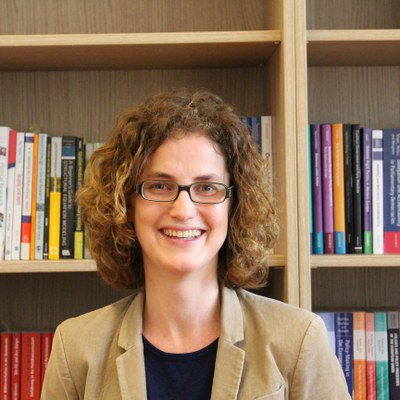Teaching Summer Semester 2019
In the summer semester 2019 we offer the following courses:
Master's Programme Social Sciences
|
|
Heike Klüver:The European Parliament Election 2019
The European Union has an important impact on the life of European citizens. The delegation of ever more policy competences from the national to the European level has turned the European Union into a powerful legislator that regulates a wide variety of policy areas affecting more than 500 million European citizens every day. At the same time as the competences of the European Union as a whole have been extended, the European Parliament as the direct voice of European citizens in Brussels has turned into a true co-legislator on equal footing with the Council. Despite the increasing competences of the European Union more generally and the European Parliament more specifically, citizens remain skeptical of the European Union. Turnout in European Parliament elections has steadily decreased over the years, European citizens have developed an increasingly skeptical attitude towards the EU and anti-European parties have gained momentum. Forschungsseminar: Politisches Verhalten im Vergleich |
Bachelor's Programme Social Sciences
Jochen Rehmert:Angewandte Wahlsystemforschung
Repräsentative Demokratien brauchen Regeln, die bestimmen wer wieviel gewinnt und die Regierung stellen darf/kann. Diese Regeln variieren stark zwischen Ländern und darin, wie Stimmen abgegeben, gezählt und in Sitze umgewandelt werden. Die Ausgestaltung dieser Regeln haben direkten, etwa wie Stimmen gezählt werden, und indirekten, bspw. durch die elektoralen Anreize für Wähler und Partein, Einfluss auf politische Ergebnisse. Dieses Vertiefungsseminar führt Studierende ein in die Vielfalt dieser Wahlsysteme und wie sie WählerInnen, KandidatInnen, Parteien aber auch Repräsentation und Policy-making beeinflussen. Begleitend zm theoretischen und konzeptionellen Texten der Wahlsystemforschung hat der Kurs auch eine methodische Komponente, in der Studierende in die Statistik-Software R eingeführt werden. |
|
Seongcheol Kim:Populismus und radikale Demokratie: Theorie und Empirie eines Spannungsverhältnisses
Radikale Demokratietheorien – von Lefort über Rancière bis hin zu Laclau/Mouffe – betonen die radikale Kontingenz und die konstitutive Unvollständigkeit der Demokratie, der Populismus hingegen die Möglichkeit oder gar Notwendigkeit, im Namen des „Volkes“ ein einheitliches Subjekt der Demokratie zu reklamieren. Wie navigieren politische Akteure das Spannungsverhältnis zwischen den beiden Logiken – etwa im Kontext von Massenprotesten für „echte Demokratie jetzt“, die charismatische Führungsfiguren wiederum in Wahlerfolge im Namen eines Volkssubjekts zu verwerten versuchen? Sind populistische Diskursmuster in solchen radikalen Demokratiebewegungen gar bereits angelegt, wie Gerbaudos Begriff des „citizenism“ nahelegt? |
|
|
|
Bernd Beber:Advanced topics in applied quantitative methods
This course aims to familiarize social science students with the concepts and tools that will enable them to critically evaluate quantitative academic and policy studies and to conduct their own quantitative research. It builds on students’ prior coursework, deepens their understanding of introductory concepts, and discusses a number of advanced topics, including maximum likelihood, bootstrapping and Monte Carlo methods, and model fit and regression diagnostics. Particular attention will be paid to techniques for causal inference such as regression discontinuity and instrumental variable estimation. The course will discuss social science applications throughout the semester, with examples in both R and Stata, and students will be asked to conduct their own applied analysis using either software package. |
 |
Heike Klüver:Forschungsseminar: Politisches Verhalten im Vergleich |


